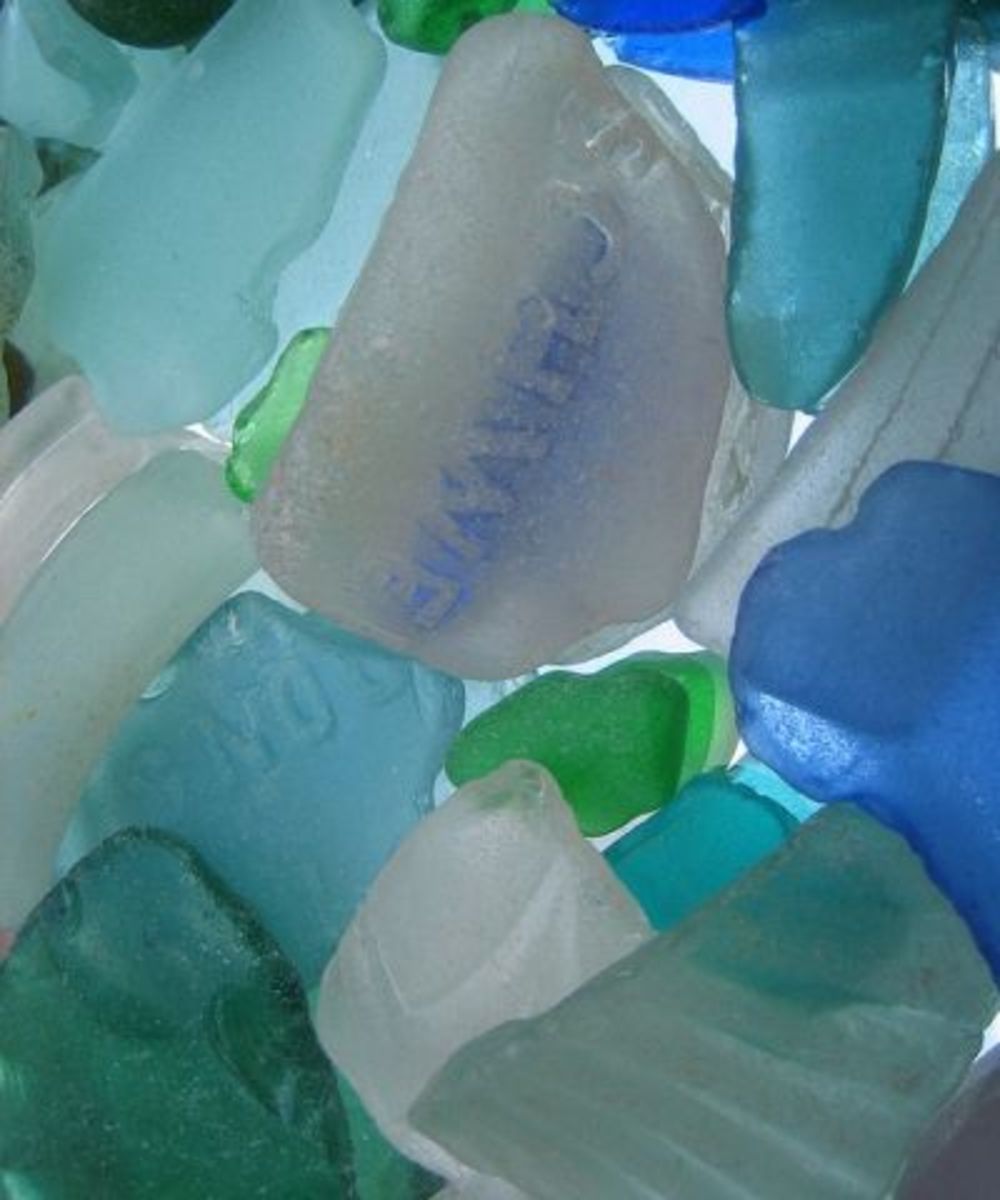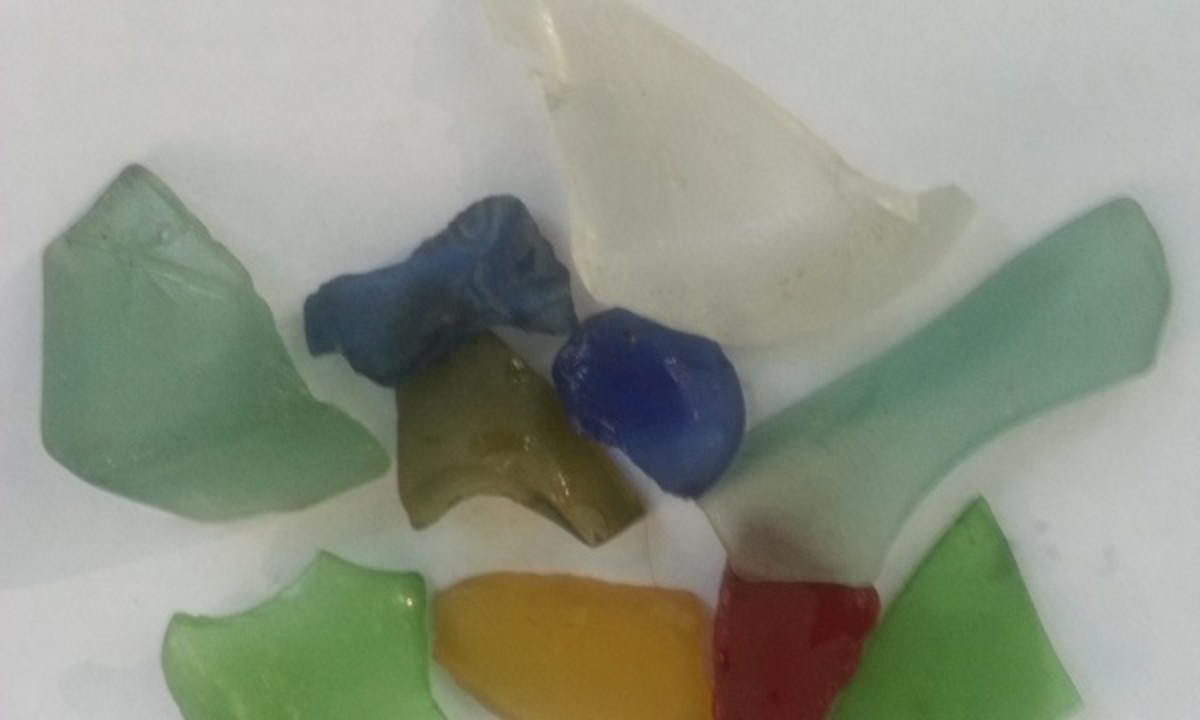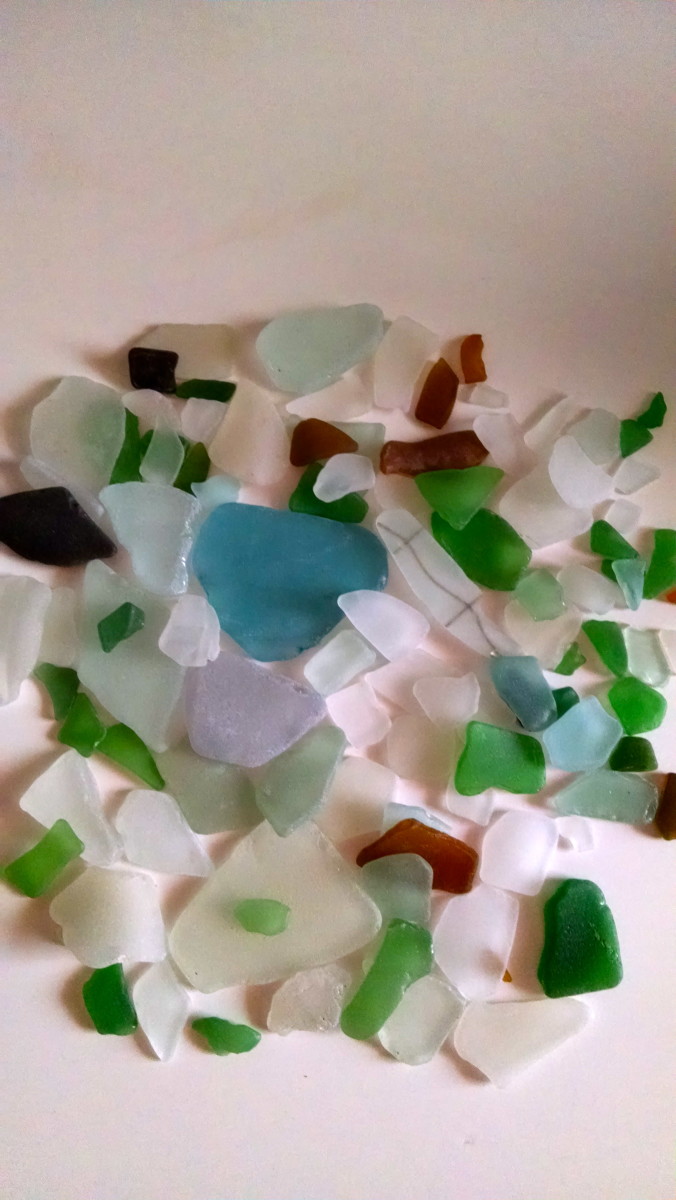Beginner's Guide to Beach Sea Glass: An Accessible and Rewarding Hobby
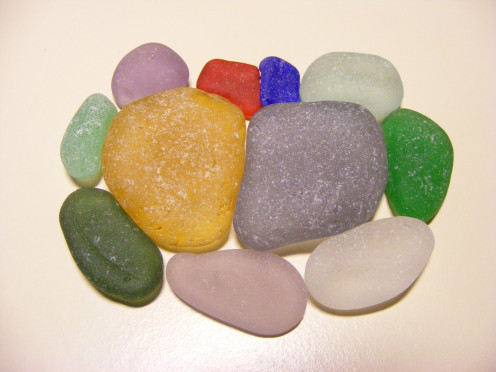
What Exactly is Sea Glass?
Sea glass (commonly referred to as beach glass) is essentially broken shards and pieces of glass weathered by the ocean and sun. It is called sea glass because it is typically found on sea shores, but also on riverbanks and by large lakes. I personally prefer pieces found by the sea because the high salinity gives them that extra bit of rough weathering that turns jagged, sharp and clear shards of glass into colorful frosted stones. Many people collect sea glass just for the sake of it while others use it to make jewelry. I myself am not interested in the jewelry aspect of it. I prefer to leave it as it is and just admire the gemlike stones I always feel privileged to pluck from the beach.
Sea glass comes in almost every color imaginable, some of which much rarer and more coveted than others. The overwhelming majority are white, brown, and green. However, some particularly light (jade) and particularly dark (forest) shades of green are a bit more uncommon. Cobalt blue, sky blue, amethyst, and pink are some of the nicest uncommon to rare colors while the rarest of the rare are orange, red, yellow, turquoise, black, and grey. Keep in mind that this list is far from exhaustive, but it is a reliable general guide.
Almost Perfect
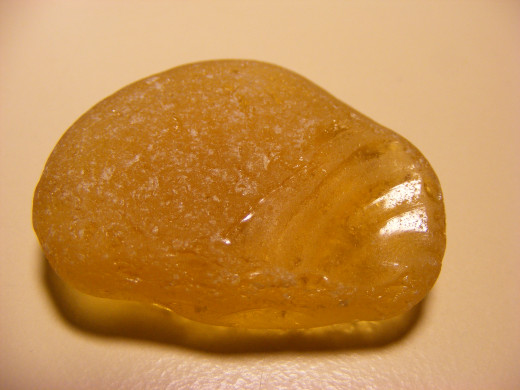
Just as important as color are texture and shape. The best specimens of sea glass are rounded, smooth, and frosty-colored. However, this is quite difficult to find. Far too often have I uncovered nearly perfect stone-like bits of sea glass only to find a massive shiny chip, as is the case with this honey-colored piece to the right.
Unfortunately, all shapes, sizes, and colors are becoming more and more difficult to find as glass is becoming more often replaced by plastic for the manufacture of bottles and other product packaging. That is why I would encourage people who may be interested in collecting sea glass to start sooner rather than later.

How Best to Find It
For starters, you are going to have to locate a stretch of shore that is neither covered only with sand, or only with stones. Neither of these environments are particularly conducive to the regular deposit of sea glass. Try to find a sandy shore covered with pebble-sized stones. The best specimens of sea glass are treated by the sea just as these pebbles are and are therefore found in the same place.
The best time to search for sea glass would be at low tide just after a storm. Wind-generated waves are a lot more powerful than many people realize and have the potential to dig up long unseen gems. Sunlight is your best friend while hunting for sea glass. I can not tell you how many times it was the faintest glint or sparkle that led me to some of my best finds.
A Close Call!
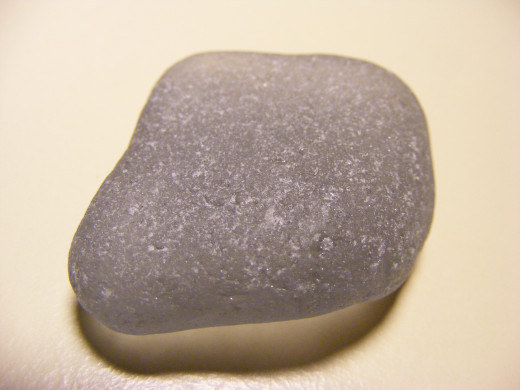
A quick note on such stony beaches: Keep aware of black and grey sea glass. These are two colors that fall under the extremely rare category, but are often mistaken for regular stones and, as such, are often overlooked. I have had several close calls of this nature.
If you have the time (and trust me, you will make the time if you get just as addicted to looking for sea glass as I am), then I recommend slowly walking up and down the waterline of an ebbing tide. The gradually receding water will slowly force you further down the beach at such a pace that will ensure you cover as much ground possible as well as multiple angles. It is very easy for sea glass to hide behind stones. Of course, the same principal applies for a rising tide, but this way, you get first pick at what shows up in the case that your beach also happens to be a popular destination for other sea glass hunters (who sometimes call themselves glunkers).
Cherished Cherry
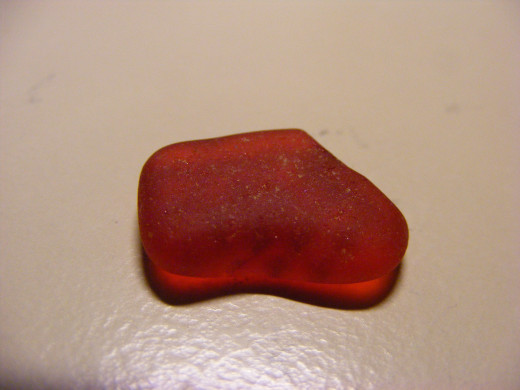
A Few Concluding Comments and Personal Anecdotes
While orange is much rarer than red, red tends much more often to be the most coveted sea glass color. I am particularly proud of my cherry-red piece (pictured right). The indentations indicate that it originates from a broken nautical navigation light. Red nautical lights have been almost exclusively plastic for the past several decades. Again, I must stress that the modern tendency toward plastic rather than glass continues to threaten the accessibility of sea glass hunting (glunking) as a viable and rewarding hobby.
Another Tricky Color!
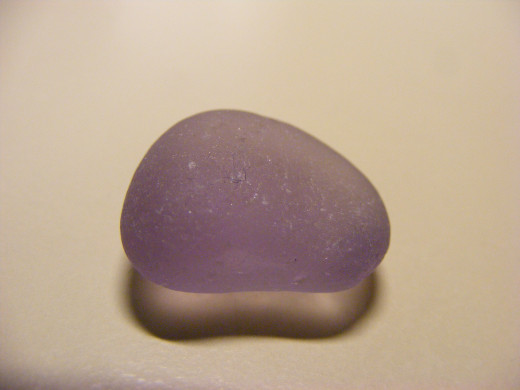
In addition to grey and black, this delicate shade of amethyst also tends to blend in with the surrounding stones and pebbles. Furthermore, this color is also quite rare and highly coveted, so I recommend looking closer before you dismiss it as a rock. Even more tricky is this type's sister glass, which begins white, but becomes a light shade of amethyst due to a chemical reaction enacted by prolonged exposure to ultraviolet light from the sun.
So, if you live on or near the coast, I highly recommend taking advantage of the joys of glunking before vulgar plastic bottles overcome their much more civilized and environmentally friendly glass counterparts.


